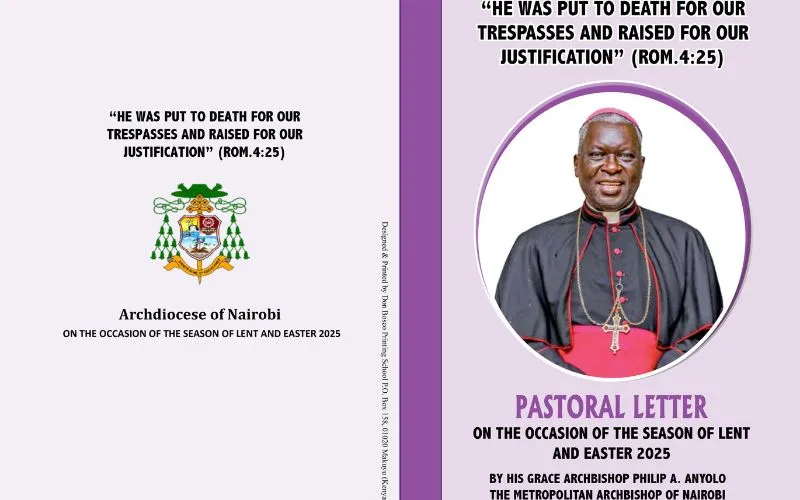“We can better comprehend our struggles with sin and learn how to overcome them through faith and reliance on God,” Archbishop Anyolo says.
He re-emphasizes the need to nurture a relationship with the person of Jesus Christ through the intercession of the Blessed Virgin Mary, saying, “With Jesus, with the word of God which is the ‘sword of the Spirit’ (Eph. 6:17), with daily family prayer, especially that of the Holy Rosary you shall overcome Satan and his deceptions.”
In his Pastoral Letter circulated to the 127 Parishes of his Metropolitan See, Archbishop Anyolo recalls the national 2025 Lenten Campaign, which members of the of the Kenya Conference of Catholic Bishops (KCCB) officially launched on February 28 under the theme, “The Kenya We Desire”.
“In this Lenten Campaign, The Kenya We Desire, we are called to reflect not only on what we want for ourselves but also on what we seek for others,” he says, and explains, “We are called to desire and work for the good of all people, regardless of their background or status. The collective good is our responsibility, and we must desire a society that fosters equality, justice, and compassion.”
The Catholic Church leader, who started his Episcopal Ministry in February 1996 as Bishop of Kenya’s Kericho Diocese highlights the vice of corruption in the country, saying, “The desire for a corrupt-free Kenya must become a deep aspiration for each of us.”
“Let us remember also that no one – technocrats, politicians, officers, religious, and Priests – is immune from the temptation of greed which leads to corrupt practices,” Archbishop Anyolo says.
He challenges the Kenyan government to invest in youths. He says, “There is immense potential in our about 37 million young people who make up the bulk of Kenya’s population. Both the young people and their elders are to work together in channelling the youthful energy and potential our young people have for the well-being of all.”
In his Pastoral Letter, Archbishop Anyolo highlights the three pillars of the Lenten Season, almsgiving, prayer, and fasting as important. In explaining them, he draws inspiration from St. Thomas Aquinas, the Doctor of the Church, patron saint of students, distinguished philosopher and theologian, and author of the “Summa Theologica.”
“St. Thomas Aquinas teaches that almsgiving is an act of justice and mercy, fulfilling Christ’s command to love our neighbour. He explains that charity is the highest virtue because it unites us with God and leads to eternal happiness,” Archbishop Anyolo says.
He adds, “During Lent, almsgiving is a means of detachment from material wealth and an opportunity to practice generosity. Jesus asked us to store up our treasures in heaven, primarily by coming to the aid of the less fortunate of our families and communities.”








